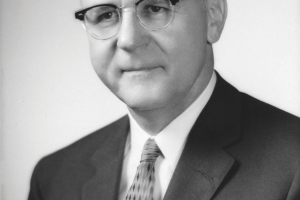If you knew then what you know now, would you have changed your definition of what success is and what makes you happy?
Since the first issue of the The New Yorker hit the newsstands on February 21, 1925, the magazine’s cartoonists have tackled (and ridiculed) the meaning of life and happiness from mountaintop gurus literally hundreds of times.
The gurus and cartoonists are no closer to an answer today than they were in 1999 when Bruce Eric Kaplan wrote this guru-delivered one-liner: “You do the hokey pokey and your turn yourself around — that’s what it’s all about.”
Defining happiness and success has been just as elusive for graduates from Harvard Business School's Class of 1963. The list of candidates includes good health, doing what you love, being in a happy marriage, raising successful children, and being totally honest.
What didn’t make their lists is, perhaps, even more significant. Not one saw wealth as the mark of a happy and fulfilled life. In fact, one grad took issue with anyone who would put too high a value on financial success, saying, “Those who persist in believing wealth brings happiness are to be pitied.”




